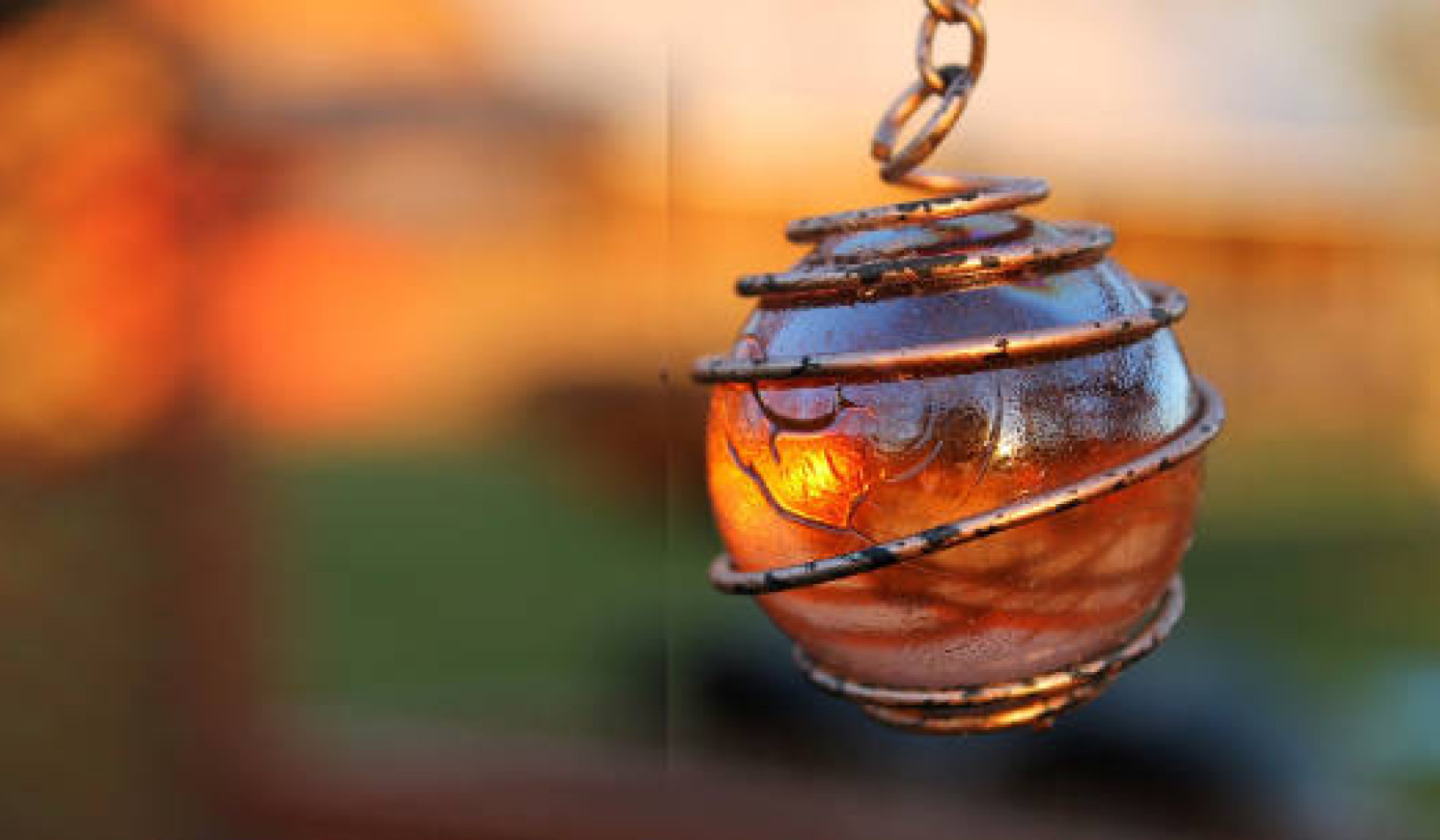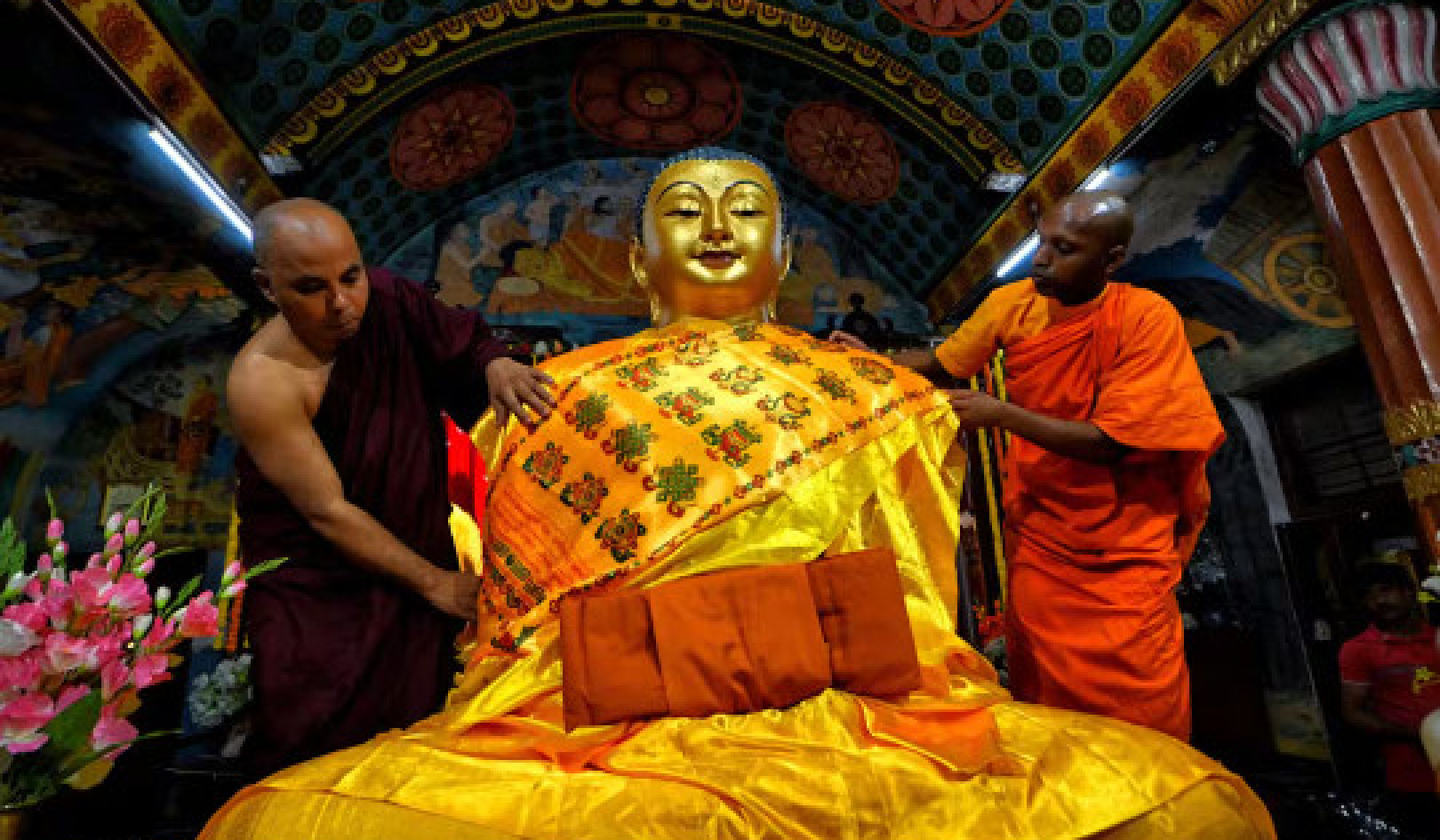
When my grandson, Alex, was a toddler, he used to run around giggling at what seemed to be empty space. Sometimes his body would actually shake with excitement, and his face would light up for no apparent reason. His mother, Natalia, called this delightful behavior "talking to the angels."
That pure joy of playing in the mud, splashing in the tub, or playing peek-a-boo is innate. That inner radiance of peace and joy is our birthright, our own true nature. And while small children are effortlessly spontaneous and joyful, as adults we have to read books and go to classes to learn how to come back home to ourselves.
Peace Is Our True Nature
It's frustrating to believe that peace is some distant goal, attainable only by a few fortunate souls blessed with good genes, superior brain chemistry, plenty of money, or a calling as a monk. But peace has not deserted even the crankiest and busiest among us. The most basic fact about being human is that peace is our own true nature, our fundamental state of mind. There's a Buddhist saying that peace is like a sun that's always shining in your heart. It's just hidden behind clouds of fear, doubt, worry, and desire that continually orient you toward the past or the future. The sun comes out only when you're in the present moment.
I can still remember my first yoga class, adrenaline junkie that I am. After an hour of contorting like a pretzel, huffing and puffing, I'd forgotten everything but the sensations in my muscles. It felt great to give my busy brain a rest. It was time for the final relaxation pose, where you lie on your back and try to emulate a corpse. This is supposed to bring you back to your own true nature of peace. Everything slows down. Breathing practically stops as your muscles unwind and your mind goes into low gear.
What's Your Relaxation Level?
The teacher walked among us and tested our level of relaxation by lifting an arm and letting it drop back to the floor. There were thuds all around. That got me thinking: Everyone else is relaxed. That woman beside me hasn't breathed for a minute; she's practically a corpse. I always tense up under pressure. How can I let go when the teacher comes over and tests me?
Before I realized what had happened, my arm had been lifted. It stayed up in the air like the leg of a dead canary. In spite of myself, I burst out laughing. Some yogi. But failure can be freeing, since there's nothing else to lose. After the laughter, I just let go. My limbs felt like they would have migrated to China if the floor hadn't been there. Exquisite feelings of peace flowed through me.
My God, I remember thinking, this must be what people are talking about when they say that they're relaxed. I hadn't felt that sensation since I was about Alex's age, when I sat in my father's lap and leaned my head on his chest while he told me stories. As an adult, do you ever feel that you're "right here, right now"?
No Mental Conditions for Happiness
When you're in the present moment, past and future fade away. There are no mental conditions for happiness. The simple pleasures of a sunrise or a sunset, the breeze on your face, a smile that seems to reach into every cell of your body, or a heartfelt conversation are always available. When you're able to let go of thinking and relax, the clouds part. You automatically become like a child again and feel the radiant joy of the inner sun. When that sun shines, you feel whole -- a part of something that extends far beyond your separate self.
The words whole, holy, and healing stem from the same root. In the holy moments of presence, you feel a kind of solidarity with life that is the very essence of inner peace. The problem is that most adults are rarely present. As the old saying goes, "The lights are on, but nobody's home." We seem to be awake, up and about, but life is passing us by while we're thinking about something else.
Are You Busy or Just Not Here?
A lot of the exhaustion and world-weariness that we blame on being busy isn't from busyness at all. It's from being anywhere but in the present, laying down conditions for when we'll finally be able to come back home to ourselves. "When I make those phone calls, when my computer stops dumping my files, when I get a new car, when the kids go to bed, when my lover or spouse or boss finally appreciates me ... then I can be happy." This would be like a five-year-old thinking, When I'm a grown-up, then I'll be happy.
Think about it. If not now, when? When you're dead?
Michelangelo was once asked how he was able to create such beautiful sculptures. He replied that he just chipped away the part of the stone that wasn't the sculpture. So it is with inner peace. The sculpture, the work of art, is already within you. Sculpting your life to reveal its essential beauty requires a consistent intention to chip away the insidious habits of mind that rob you of the childlike ability to stay present to the flow.
When you feel "crazy busy," try taking a breath, and let go of whatever is on your mind. Think, Here I am. Let your body relax, and feel your connection to the larger whole. This is not an easy task, but it becomes more and more possible with practice. Here you are. The possibilities for joy are all around you.
Reprinted with permission of the publisher,
Hay House. ©2001, 2003. www.hayhouse.com
Article Source
Inner Peace For Busy People
by Joan Borysenko.
 Inner Peace for Busy People consists of 52 weekly entries that are both inspirational and practical. Through story and science, spirituality and humour, readers are given simple skills to help them change their lives and attitudes to recover inner peace, one week at a time. Joan Borysenko demonstrates that you don't have to be a monk to walk your life's journey with graciousness and joy. All that is required is to pay attention, choose wisely, and live with purpose and passion.
Inner Peace for Busy People consists of 52 weekly entries that are both inspirational and practical. Through story and science, spirituality and humour, readers are given simple skills to help them change their lives and attitudes to recover inner peace, one week at a time. Joan Borysenko demonstrates that you don't have to be a monk to walk your life's journey with graciousness and joy. All that is required is to pay attention, choose wisely, and live with purpose and passion.
Info/Order this book (newer paperback edition). Also available as a Kindle edition, an Audiobook, and an Audio CD..
About the Author
 Joan Borysenko, Ph.D., is one of the leading experts on stress, spirituality, and the mind/body connection. She has a doctorate in medical sciences from Harvard Medical School, is a licensed clinical psychologist, and is the cofounder and former director of the mind/body clinical programs at the Beth Israel Deaconess Medical Center, Harvard Medical School. She is an internationally known speaker and consultant in women's health and spirituality, integrative medicine, and the mind/body connection. She is the author of numerous books, including the New York Times bestseller Minding the Body, Mending the Mind. Joan's Website is: www.JoanBorysenko.com.
Joan Borysenko, Ph.D., is one of the leading experts on stress, spirituality, and the mind/body connection. She has a doctorate in medical sciences from Harvard Medical School, is a licensed clinical psychologist, and is the cofounder and former director of the mind/body clinical programs at the Beth Israel Deaconess Medical Center, Harvard Medical School. She is an internationally known speaker and consultant in women's health and spirituality, integrative medicine, and the mind/body connection. She is the author of numerous books, including the New York Times bestseller Minding the Body, Mending the Mind. Joan's Website is: www.JoanBorysenko.com.




























